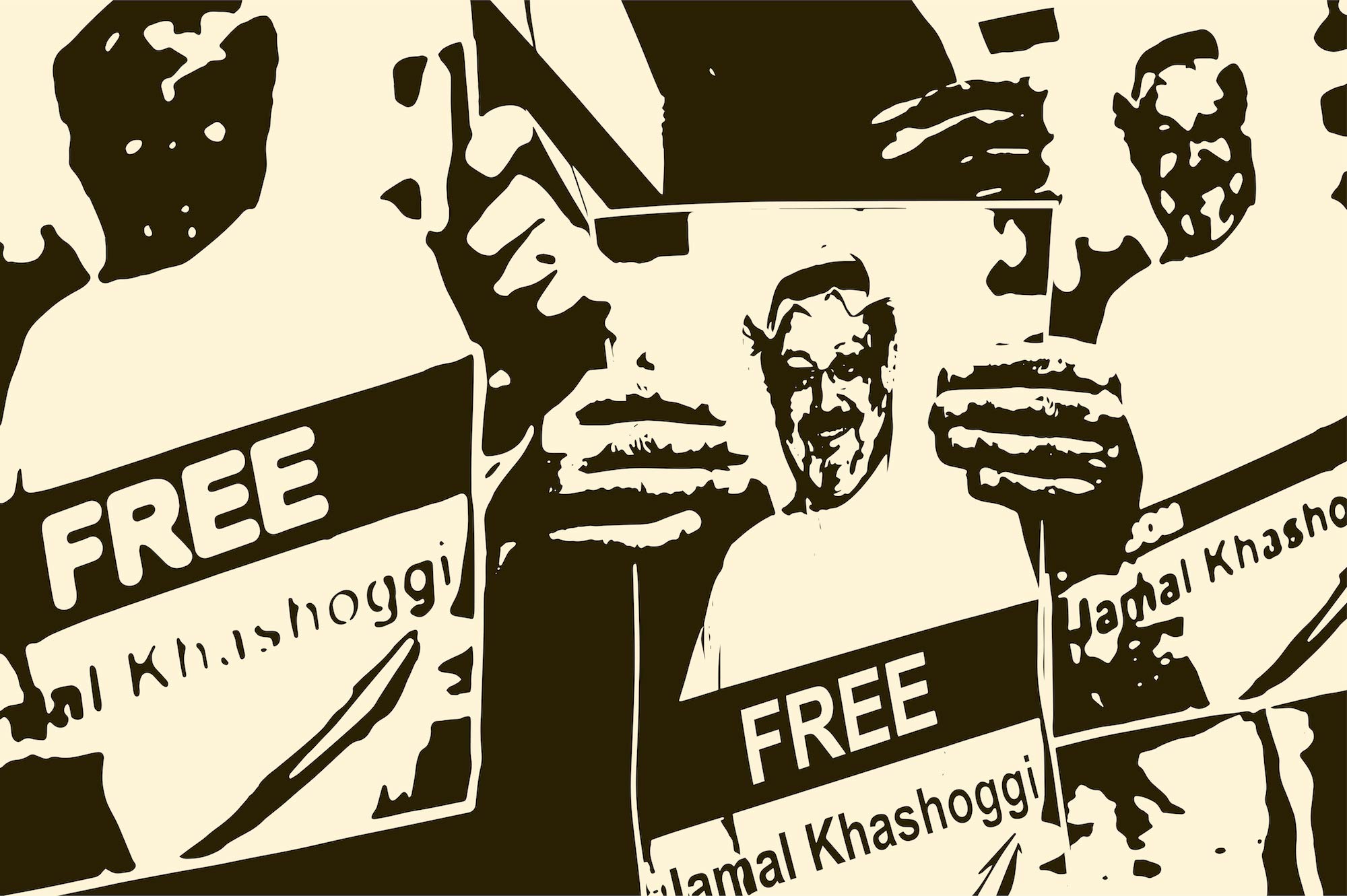On October 2, Jamal Khashoggi walked into Saudi Arabia’s consulate in Istanbul with his fiancé, Hatice Cenzig. They were busy making wedding plans and planning to buy appliances for their new home. “All we needed was a piece of paper,” said Cenzig. That piece of paper would have allowed them to be married. It should have been a happy day.
Cenzig has not seen Khashoggi since.
The story that has emerged since the disappearance of Khashoggi, a Washington Post contributor and outspoken critic of the Saudi regime, is a horrific tale of a fifteen-member Saudi intelligence hit squad, bone saws, and a gruesome murder. But President Donald Trump has been slow to respond to allegations that the Saudis may be responsible for Khashoggi’s death, as the evidence indicates.
There is at least one possible reason Trump and many others in Washington have been reluctant to call out the Saudis — cash.
The DC establishment has received billions in Saudi money through arms sales, lobbying, and even traceable campaign contributions. Saudi money has made its way into the hands of many of the Washington elite. And in an effort to buy their influence, it is possible the Saudis have also bought their complacency.
A LOBBYING JUGGERNAUT
Over the past several years, the Saudi government has employed a small army of US lobbyists and influence brokers to shape positive perceptions of Saudi Arabia. There are currently thirty-five active Foreign Agents Registration Act (FARA) registrants lobbying for Saudi Arabia in the United States. According to FARA records, Saudi Arabia poured nearly $10 million into these lobbying firms in 2016, and almost tripled that number to a whopping $27.3 million in 2017.
This high-priced campaign to influence US policy has undeniably become a reliable source of wealth for lobbyists and policymakers alike.
This high-priced campaign to influence US policy has undeniably become a reliable source of wealth for lobbyists and policymakers alike. An analysis by the Foreign Influence Transparency Initiative (FITI) at the Center for International Policy, where we both work, found that in 2017 foreign agents at firms lobbying for the Saudis reported contacting over 200 members of Congress, including every US Senator, and made $390,496 in campaign contributions to those very same members. The analysis notes that there have been 11 instances in which a firm reported contacting a Member of Congress on behalf of the Saudis on the same day that the same firm made a campaign contribution.
BILLIONS IN ARMS SALES
While politicians have been lining their pockets, arms manufacturers have been padding their bottom lines — to the tune of $110 billion in arms deals, according to Trump. For more than three years, Saudi Arabia has relied heavily on US military support and bombs to defeat the Iran-backed Houthi rebels in Yemen. President Trump has declared these transactions “tremendous” and has bragged about billions of dollars in investments and jobs that will be brought to the United States as a result. In fact, Trump was so enthused to sell arms to Riyadh that he brought his very own prop to a meeting with Saudi Crown Prince Mohammed bin Salman in the White House: a US map highlighting which of America’s 50 states would benefit most from pending weapons sales to the prince’s country.
Michigan, Ohio, and Florida, three crucial swing states in the 2016 presidential election, were specifically highlighted.
A DANGEROUS PRECEDENT
What President Trump and the Saudis fail to emphasize is that some of these US-made bombs have been responsible for civilian deaths in weddings, funerals, and school bus trips in Yemen.
Brent D. Griffiths reports at Politico that Trump indicated late yesterday that he is hesitant to halt arms sales to the Saudis even if they are found to be responsible for Khashoggi’s assumed death, believing such a move could be detrimental to the US economy. But, continuing to sell weapons to Saudi Arabia despite the atrocities in Yemen and Khashoggi’s mysterious disappearance sets a dangerous precedent, and it is imperative we not prioritize arms sales over basic human decency. Khashoggi’s activism — which addressed this issue — represented an important push to reexamine Saudi social policy, shedding a harsh light on the Saudi Arabian regime and undermining the reputation it’s worked to cultivate in the United States.
Washington should put added pressure on Saudi Arabia to address Jamal Khashoggi’s disappearance and its implications for the Saudi Arabian people, as well as US-Saudi relations.
Avery Beam is a Research Associate with the Foreign Influence Transparency Initiative at the Center for International Policy.
Thomas Low is a Research Associate with the Foreign Influence Transparency Initiative and Arms and Security Project at the Center for International Policy.














